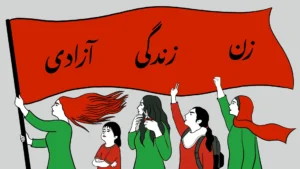Between a sewn-up neckline and an eye rolled in consternation lies a question that won’t go away: who determines what makes a woman respectable? Respectability is a centuries-old sociocultural currency, particularly in ethnic, diasporic, or conservative circles. It offers acceptance and protection, only if one follows the code. Speak softly. Dress conservatively. Curb your ambition. Be deferential, self-effacing, and modest.
Above all, be palatable. But who decides what is palatable? And what is the cost for its maintenance? There is a rising generation of women who are courageously rejecting this unwritten contract. They are not requesting reformation. They are orchestrating a rupture. From TikTok reels to dinner table arguments, from job interviews to courtroom testimony, modesty no longer has its
act. Peace is not safety, nor safety can ever be. Respectability, for so long the mask of virtue, stands revealed as control. This is not a fashion move. It is an insurgency.
A girl uploads a photo in a backless dress. A hijabi poet takes the mic. A college student ¬†challenges a professor during a course lecture. These are not spontaneous acts of rebellion.¬†They are intentional refusals of systems that have always expected women‚Äôs obedience and¬†have offered little in the way of authentic promises in return. “Calm down”; respectability mutters, “do what they say and you’ll be safe.” Yet reality provides a¬†harsh rejoinder. Here, girls are harassed, even when they are very modestly dressed. Yes, the¬†wives who give up everything still end up being left alone. Women who bite their tongues still¬†raise other women into silence. The promise was performative, and the rewards are illusory.¬†Respect is also policed not just by patriarchal diktats but community complicity. It arrives as the¬†mother‚Äôs exasperated sigh, the cousin‚Äôs dire warning, the influencer‚Äôs passive-aggressive caption. It spills into WhatsApp groups, school policies, wedding invites, and the solicitous aunt¬†who whispers, ‚ÄúWe just want the best for you,‚ÄĚ when what she means is, ‚ÄúDon‚Äôt make us¬†ashamed.‚Ä̬†But then, so is shame. And, like all inventions, it serves a master.¬†The women now challenging respectability politics are not repudiating their lineage. They are¬†recontextualising it. They‚Äôre asking the uncomfortable but necessary questions. Why should¬†visibility be equated with vulgarity? Why is a brother‚Äôs ambition applauded, and a sister‚Äôs¬†deconstructed? Why does dignity demand erasure?¬†And this defiance is not in mindless rebellion. And it is a reclamation of narrative, of body, of¬†voice.
¬†challenges a professor during a course lecture. These are not spontaneous acts of rebellion.¬†They are intentional refusals of systems that have always expected women‚Äôs obedience and¬†have offered little in the way of authentic promises in return. “Calm down”; respectability mutters, “do what they say and you’ll be safe.” Yet reality provides a¬†harsh rejoinder. Here, girls are harassed, even when they are very modestly dressed. Yes, the¬†wives who give up everything still end up being left alone. Women who bite their tongues still¬†raise other women into silence. The promise was performative, and the rewards are illusory.¬†Respect is also policed not just by patriarchal diktats but community complicity. It arrives as the¬†mother‚Äôs exasperated sigh, the cousin‚Äôs dire warning, the influencer‚Äôs passive-aggressive caption. It spills into WhatsApp groups, school policies, wedding invites, and the solicitous aunt¬†who whispers, ‚ÄúWe just want the best for you,‚ÄĚ when what she means is, ‚ÄúDon‚Äôt make us¬†ashamed.‚Ä̬†But then, so is shame. And, like all inventions, it serves a master.¬†The women now challenging respectability politics are not repudiating their lineage. They are¬†recontextualising it. They‚Äôre asking the uncomfortable but necessary questions. Why should¬†visibility be equated with vulgarity? Why is a brother‚Äôs ambition applauded, and a sister‚Äôs¬†deconstructed? Why does dignity demand erasure?¬†And this defiance is not in mindless rebellion. And it is a reclamation of narrative, of body, of¬†voice.
There is, predictably, a backlash. Charges such as shameless, dishonourable, or attention­-seeking are thrown around with a self-righteous flourish. And for many, the cost is not only social. They are existential. Yet the resistance persists. Not because it is not dangerous, but because the price of complicity is now a bridge too far. This resilience in the face of adversity is a testament to the strength of these women. The disquiet in society is not caused by disorder. It is autonomy. The chaos isn’t in women’s decisions; it is in the system’s inability to govern the women. Some of this is dismissed as shallow, the result of fashion or digital exhibitionism. But that interpretation is facile. In the kind of world where wearing the wrong hemline can ruin a family’s honour, where a smile can be mistaken for consent, even aesthetics are explosive. Style is never just style when politicised in the eye of the beholder.

Case in point: Mahsa Amini, the 22-year-old Iranian Kurdish woman who was taken into custody by Iran’s morality police in 2022 over an alleged hijab violation on suspicion of breaking hijab laws. She was killed in suspicious and heinous custody. Her death set off one of the largest Iranian protests in decades. Women hit the streets, hacked off their hair in protest, burned scarves, and marched for the right to clothe themselves and choose their life-path. Her name became a veiled reference for a generation not willing to be eliminated. Mahsa did not seek martyrdom. She sought normalcy. And the regime turned even that into a gesture of defiance. Her death laid bare the brutal math of imposed modesty. It showed how decency is no protection and can be a cudgel to justify persecuting women. Her tale was no moral yarn about cloth. It wasn’t about water; instead, it was about power, and the fear of letting it go.
Respectability does not accommodate complexity. It needs women to be ‚Äúreadable‚ÄĚ by the¬†patriarchy. But women are not allegories. They are pluralities.¬†Others will run start-ups in abayas. Still others will write poetry in miniskirts. Some will even¬†gasp and choose marriage; others will redefine partnership entirely. These lives are not¬†contradictions. They are kaleidoscopic, and they deserve our respect and acceptance.¬†And yet we continue to ask reductive questions. Is she modest enough? Is she marriageable? Is¬†she a good girl? These queries are not inquiries. They are instruments of control. They prioritize¬†the viewer’s feelings over the reality being viewed.¬†A more relevant set of questions: Why has female respect always been contingent? Whose¬†measuring stick was modesty anyway? When women reduce themselves to fit in someone¬†else‚Äôs frame, what do we lose?
Respect, at its core, must transcend obedience. If it is contingent on silence, invisibility, or¬†acquiescence, it is not respect; it is subjugation by another name.¬†Today‚Äôs young women are doing more than just resisting. They are reconstructing. They are constructing ecosystems in which power is the domain of the authentic, not of the assimilative.¬†What they are saying is: ‚ÄúLet me honor my values, not the version that filtered through your¬†nostalgia.‚Ä̬†This is not an arbitrary intergenerational rebellion. This is a demand for narrative sovereignty.
Traditions are not traditions because they are old. Just because cultures are held dear does not mean they are above critique.
Evolution isn’t betrayal; instead, it’s evidence that a culture is alive and well. Respectability in its petrified state is not armor. It is punitive. It provided refuge and dispensed surveillance. It preached decorum and it practised discipline. Now the illusion is cracking. Instead, a different vocabulary is taking shape. One that respects action over acclaim. Truth over performance. Power over propriety. The women who speak it are not demanding to be tolerated. They are claiming their right to exist in the plural. Because the question has changed.
It’s no longer: how can we angle ourselves to make women more respectable?
The question is: why did we ever tolerate a world that required them to?
















